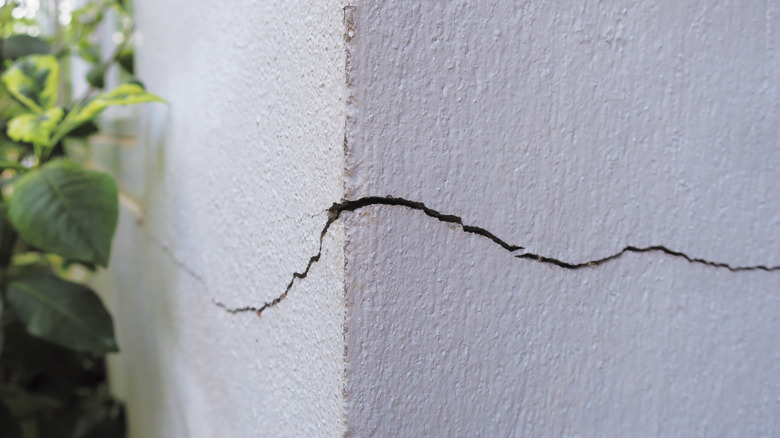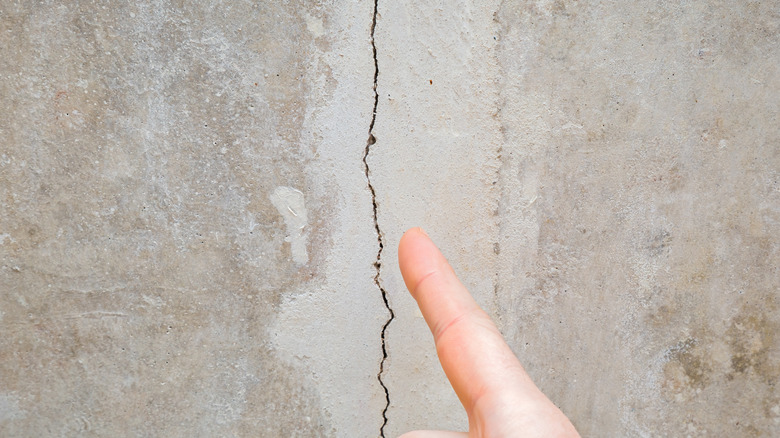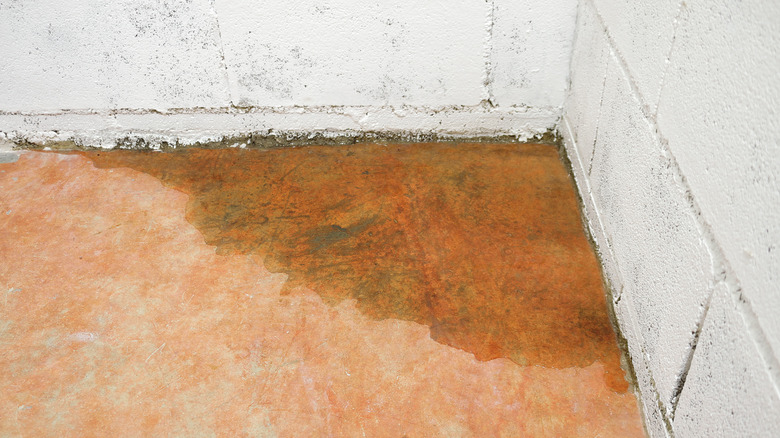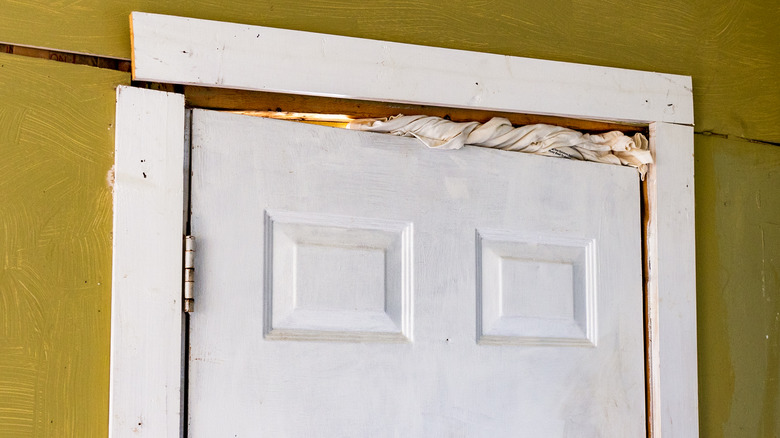Signs There Is A Problem With Your Home's Foundation, According To An Expert
The home's foundation is just that — the surface the home is built on, and the house's stability is critically tied to just how strong and intact the foundation is. Though it seems stable, the ground under homes can shift over time, leading to a surface that's less able to support the structure above it. These are not problems to ignore because the longer you wait to address them, the more likely it will be a costly and difficult repair. More so, it can lead to added challenges, including mold and mildew growth, insects moving in, and a drop in your home's value.
How do you know there's an issue that needs attention, though? What if something seems to have "always been there" or doesn't seem to be causing damage? A good place to start is with these common signs of a problem with a home's foundation. Dale Granbois, the founder of Zablocki Waterproofing & Foundation Repair, shares what to look for to know you need a foundation repair in an exclusive interview with House Digest.
Cracks in walls or the foundation, or shifting of floors or door frames
A good place to start is with a walk around the basement, the exterior of the home, and along the first floor, looking specifically at the base of each wall, especially outside walls. If you haven't done this before, make it a habit to do it when the seasons change, which may help you to spot problems early on. What are you looking for? Start with any evidence of cracks or fine or larger lines in the foundation concrete, blocks, or bricks. Granbois shares, "Cracks in the foundation, walls, or floors of your home, as well as any noticeable shifting in door frames and windows, are all signs that you need to have your foundation inspected."
The cracks don't have to be significant to warrant a call, though the larger they are, the more eminent potential failures can be. "These cracks can often be caused by water pressure from outside sources such as rain or snow, which then saturates the soil around your home's foundation, eventually causing it to start to move and crack," reveals Granbois.
Water leaking into the basement
Does your basement feel wet or damp? Even if you don't see any water on the floor or other leaks, it may have a musty smell. Granbois warns, "Water seepage into your basement is one of the most destructive elements when it comes to foundations, so if you notice any signs of water seepage in your home, it is important that you address it right away." Touch the walls to see if they are moist and look for any indications of moisture staining the drywall, too.
"Water can cause damage quickly and can even lead to cracks in foundation walls and floors, which is why it's essential to have a professional assess the problem as soon as possible. They will be able to determine the source of the issue and make sure that the situation doesn't worsen," shares Granbois. In some situations, you'll need to repair the cause of the water leak and have the area properly cleaned to manage any mold or mildew development.
Gaps at meeting points or sticking doors and windows
Some of the signs of foundation problems happen outside of the basement. Consider this: When the ground shifts under the home due to water, erosion, or even small earthquakes, it can cause the walls and all components on those walls, like doors and windows, to also shift. These are likely indicators of issues throughout the structure. To pinpoint these, Granbois recommends paying attention to subtle changes in the home. "Another sign that something may be wrong with your home's foundation is if you start to notice gaps where walls meet the ceiling or between window/door frames and walls. This can be a sign that something has shifted and needs to be checked out."
"If you've noticed that doors or windows in your home are sticking, not opening or closing properly, or won't stay open, this could be because the foundation has shifted and is causing misalignment," he shares. Don't write off these concerns as being related to having old windows or doors, as it's easy to miss this early sign of trouble. You may not notice huge differences all at once, but if visitors struggle to open and close doors or comment about sticking windows, that's a signal something is off.
Uneven settling of the home may cause sloping floors inside
Place a ball in the center of your living room or anywhere else in the home where there is no carpeting. Hold it until it stops moving, and then let go. Does it move? If so, your home may have a foundation problem. "If you've noticed that the floors on the first or second story of your home are sloping, this could be a sign that there is uneven settling happening in your home. This could be caused by an underlying foundation issue that needs to be investigated as soon as possible," warns Granbois. You may not notice this just walking around, especially at first.
Creaking floors, hard-to-open windows, and new gaps of light through the window or doorframe from outside are just some of the signs something isn't level in the house, and it may not be obvious or even noticeable from the outside. Don't ignore these concerns, Granbois warns, "All of these signs should be taken seriously to prevent further damage to your home." These are some of the most important home repairs you should fix soon.




